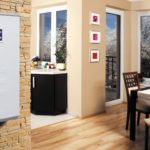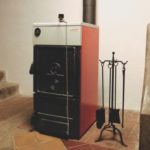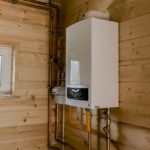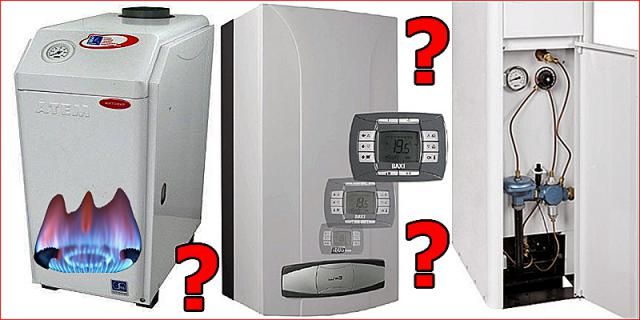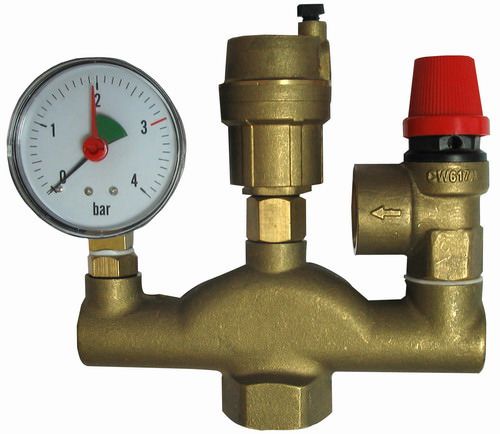Types of electric boilers for heating a private home
Now a huge number of people prefer to live outside the city. An important issue when organizing country life is heating a private home. The most popular heating method today is an electric boiler.
They are presented on the market in various categories. To choose the device that is right for you, you should understand the characteristics of each type.
The content of the article
Main types of electric boilers for heating
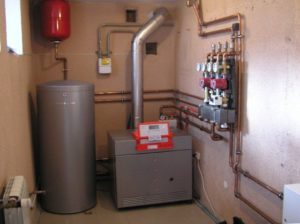 The operating principle of this equipment is based on the fact that the incoming electricity heats the coolant, which ensures heating of the water. The type of electric boiler depends on how the coolant is heated. There are 3 types of them:
The operating principle of this equipment is based on the fact that the incoming electricity heats the coolant, which ensures heating of the water. The type of electric boiler depends on how the coolant is heated. There are 3 types of them:
- Heating element electric boilers are the basis for the design of this type of equipment; A heating element is a thermal heating element - a tube, inside of which there is a spiral that conducts current. The heating element, hermetically built into the pipe, heats the water in it. A circular pump ensures uniform distribution of water throughout the pipeline;
- An electrode electric boiler is also called ion, ion exchange, electrolysis. And all because the conversion of electricity into energy occurs thanks to electrodes.The coolant (liquid of a certain chemical composition) is supplied in such a way that it ends up between the electrodes, voltage is applied to them and the water is heated;
- Induction electric boilers - heating of the coolant occurs due to the occurrence of induction current. The design is based on a metal core on which wires are wound. Current is supplied through them, an electromagnetic field appears in the core and it heats up. Energy is given to the coolant, which heats the water.
Number of circuits, efficiency and power of electric boilers of different types
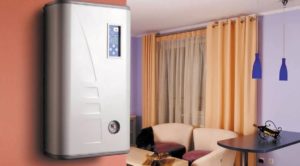 The heating element electric boiler has a power of 12 kW. All power is distributed over 6 heaters, 2 kW each. Efficiency is 98%.
The heating element electric boiler has a power of 12 kW. All power is distributed over 6 heaters, 2 kW each. Efficiency is 98%.
Important! Over time, scale formation occurs on heating elements, causing them to lose their original power. To avoid this, use distilled water as a coolant - a liquid without impurities! The electrode electric boiler has a power of 1-16 kW, distributed over 1–3 phases. The efficiency is about 100%. The efficiency of an induction electric boiler is 98–100%.
Unlike a device based on heating elements, scale does not form here (as on the electrode), and the power remains the same as when purchased - from 2 to 1500 kW.
How many circuits your boiler will have, choose yourself. Their number depends on the purposes for which the heated water will be used. Single-circuit systems are used only for space heating, and a unit with two circuits is used to heat water in the tap and to heat the air in the room.
Which type of electric boiler is better?
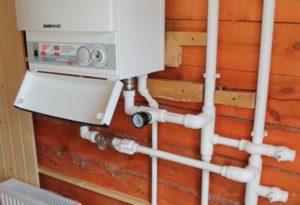 When choosing a boiler, proceed from your needs and capabilities - study the advantages and disadvantages of one type or another.
When choosing a boiler, proceed from your needs and capabilities - study the advantages and disadvantages of one type or another.
A heating element electric boiler has the following advantages:
- Relatively low price;
- Safety of the unit.
Flaws:
- Scale formation and reduction in system power;
- The coil in the heating element may burn out.
The electrode electric boiler has positive features:
- Small design size;
- There are no heating elements, scale does not form and the coil will not burn out;
- The lack of coolant will not lead to breakdown of the unit.
Flaws:
- High cost of liquid used as a coolant;
- Good grounding is required to prevent the possibility of electric shock;
- Difficulty in regulating power.
An induction electric boiler is one of the types of electric boilers for heating a private home. Its advantages:
- Any type of coolant;
- Does not require replacement of heating elements - no heating elements or electrodes;
- Heats up quickly;
- Works safely;
- Long service life.
Flaws:
- High price;
- Heavy weight - about 40 kg;
- Requires forced circulation by a pump.
You should weigh all the pros and cons and set priorities! Then you will purchase the necessary goods, and your home will always be warm, cozy and safe!

